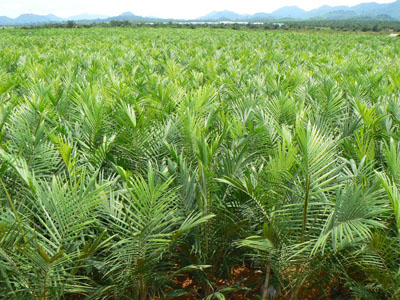- Blog
- Sustainable Economic Systems
- Bumitamas diary of destruction
Bumitamas diary of destruction

Donate Now!
Your contribution will benefit Friends of the Earth.
Stay Informed
Thanks for your interest in Friends of the Earth. You can find information about us and get in touch the following ways:
When Friends of the Earth detailed the abuses and illegal actions of the Indonesian palm oil company Bumitama Agri in our report, Commodity Crimes last November, it set in motion a discussion in which the company made a number of promises to improve its practices. The report and its allegations also contributed to the pressure that led Wilmar International, the largest purchaser of Bumitama’s oil, to make its historic No Deforestation, No Peat, No Exploitation commitment, and to extend that commitment throughout its supply chain. The report also spurred a number of Bumitama’s financiers to call the company to the carpet and demand change.
But despite the promises and the attention, as FoE Europe and BankTrack note in a press release today, Bumitama Agri continues to produce palm oil on illegally cleared lands in West Kalimantan, and neither the company’s financiers nor Wilmar have yet cut off their ties to the company. Indeed, according to reports in late February, Bumitama’s stock is on the rise, and the company expects to increase production by thirteen percent in 2014, while falsely claiming that the violations they’re charged with are fully resolved. Further, the company boasts of its plan to plant an additional of 54,000 hectares over the next four years – that is, 54,000 hectares of land that was once densely forested and vibrant with tropical fauna, cleared of trees and awaiting production even as the company continues to put illegally-produced palm oil on the world market. All this while the forests of Indonesia face another extreme fire season, with the fires concentrated in areas being cleared for palm oil production.
The Commodity Crimes report was spurred by concerns that two Bumitama-run plantations were in serious breach of Indonesian permitting regulations, and by the discovery in March 2013 of several wounded and dying orangutans on one of these plantations. Following that discovery, the company committed to the Round Table on Sustainable Palm Oil (RSPO)— the industry-friendly body that claims to adjudicate such cases – to stop all land clearing until proper impact assessments were completed, and to stop producing palm oil from these plantations until the RSPO had resolved the several complaints against it.
Following months of discussions with the company, Friends of the Earth has documented Bumitama’s Diary of Destruction with a timeline of the company’s ongoing forest crimes. The timeline focuses on the two plantations detailed in our Commodity Crimes report: LSM and GY Plantation, both in Ketapang district, West Kalimantan, as well as several ongoing complaints against Bumitama filed at the RSPO (here, here, and here).
In October 2013, prior to publishing Commodity Crimes, Friends of the Earth contacted all of the Western financiers of Bumitama, including Rabobank, Amundi and Deutsche Bank in Europe, and MassMutual Financial Group, BlackRock, State Street Corporation, Fidelity Investments, and TIAA-CREF in the United States, to alert them to the concern that Bumitama is acting in violation of Indonesian law, of RSPO criteria, and in many cases, of the financiers’ own policies. Other groups, like Rainforest Action Network, Environmental Investigation Agency, and Global Witness, contacted HSBC, the bank that ran the books for Bumitama’s 2011 Public Offering. Several of these financiers told the company to clean up its act, but none of them saw a need to pull their financing or halt their financial services.
In January 2014 Bumitama wrote in a letter to FoE that it had plans to “to reinstate its permits and licenses” for GY Plantation, thereby acknowledging that the legally required permits were not in place, and tacitly, therefore, that the company continued its illegal production of palm oil from that plantation. Similarly, satellite mapping reveals that Bumitama continued to clear land in its LSM Plantation even after November 2013, in breach of its promise to RSPO, to Friends of the Earth, and to its financiers.
In other words, the forests of West Kalimantan continue to fall before Bumitama’s bulldozers, the company’s bankers and investors continue to reap increasing returns on their investments, and the company itself is counting its profits and buying time.
Bumitama’s ongoing broken promises are just the latest indication of an industry that thrives on flagrant violations of the law to extract every ounce of profit it can from the falling forests of South East Asia. As we stated in the Commodity Crimes report, all actors across the palm oil supply chain, from investors and financiers to retailers and consumers, bear responsibility for stop the problems caused by the palm oil industry. In revisiting our findings, Friends of the Earth redoubles our call to financiers to publicly cancel their loans and withhold all financial services from Bumitama or any company associated with it. We also reiterate our demand that Wilmar International, in keeping with its new policy, publicly terminate all contracts with Bumitama. Only by taking such clear actions to hold bad actors to account will other companies in the palm oil sector get the message that it’s time to shape up or shut down.
